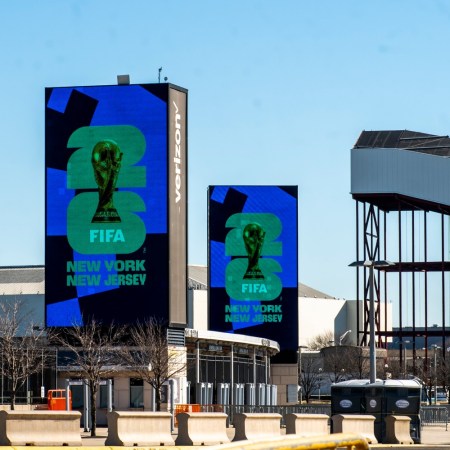According to an analysis carried out by The Guardian, at least 6,500 migrant workers who were brought in from India, Pakistan, Nepal, Bangladesh and Sri Lanka over the last 10 years to build Qatar’s 2022 World Cup facilities have died.
That means an average of 12 migrant workers from those five nations have died each week since Qatar was awarded the World Cup in December 2010. As appalling as those figures are, the number of overall deaths is likely much higher because no data is available about the number of dead migrant workers from Kenya or the Philippines. Deaths in the final months of 2020 are also not accounted for.
Projects that been completed or are underway in advance of the 2022 event include the building of seven new stadiums, a new airport, roads, public transport systems, hotels and even a new city that is being built specifically to host the World Cup Final.
“A very significant proportion of the migrant workers who have died since 2011 were only in the country because Qatar won the right to host the World Cup,” Nick McGeehan, a director of an advocacy group specializing in labor rights in the Gulf told The Guardian.
While reported causes of death range from asphyxia due to hanging to death due to a fall from height, the most common killer of migrant workers by far is “natural deaths” that are often attributed to acute heart or respiratory failure that could be related to Qatar’s intense summer heat.
The country’s government does not dispute the number of deaths but points out the figures include white-collar workers who have died naturally after living in Qatar for many years and says the number of blue-collar worker deaths is proportionate to the two million-strong migrant workforce.
“The mortality rate among these communities is within the expected range for the size and demographics of the population. However, every lost life is a tragedy, and no effort is spared in trying to prevent every death in our country,” the Qatari government said in a statement.
Around 1.7 million people are expected to visit Qatar for the 2022 World Cup. Perhaps that number will change if more human rights organizations call for a boycott of the event.
“There is a real lack of clarity and transparency surrounding these deaths,” said May Romanos, Gulf researcher for Amnesty International. “There is a need for Qatar to strengthen its occupational health and safety standards.”
The Charge will help you move better, think clearer and stay in the game longer. Subscribe to our wellness newsletter today.



















